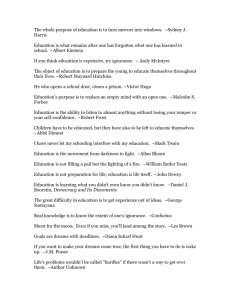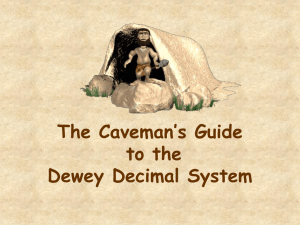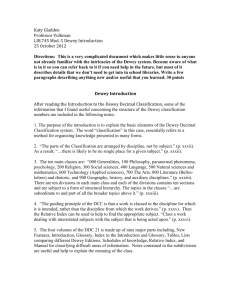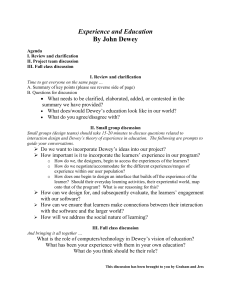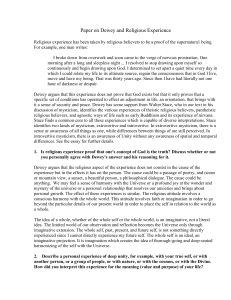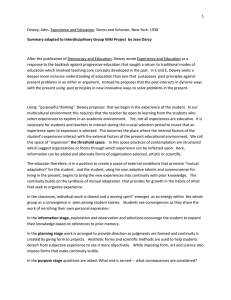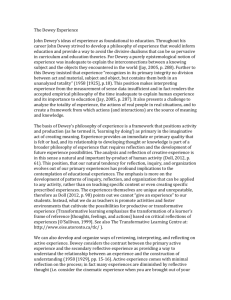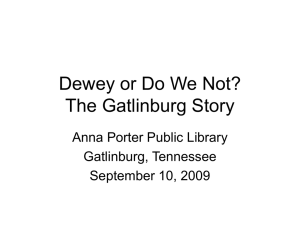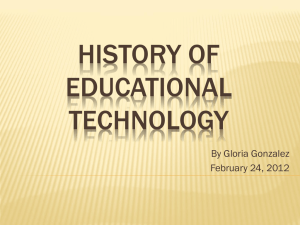Mini-facilitation 2
advertisement
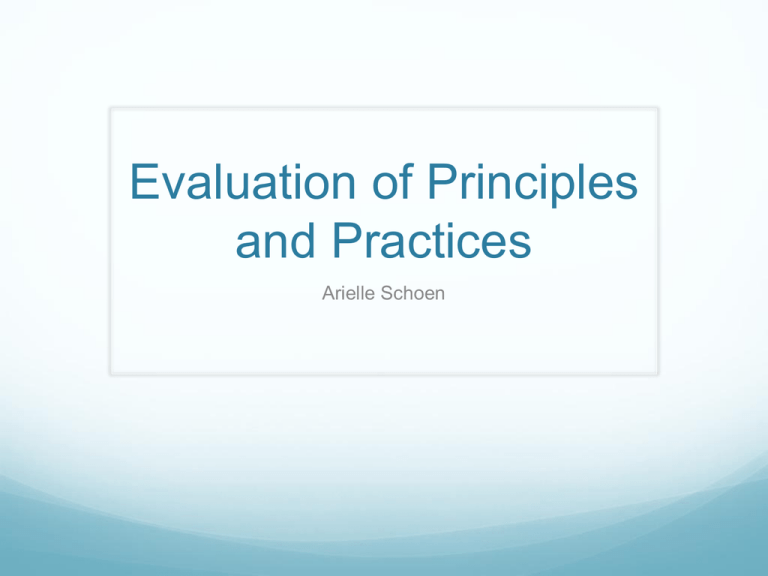
Evaluation of Principles and Practices Arielle Schoen Principle of Growth Approach of those guiding experiment was biological and functional—growth is main characteristic of life at all levels Study of development of early infancy was the key to finding out this principle Mr. Dewey’s three factors of rhythmical, unified labor: Sensory-stimulus, central connection/idea, and muscular response These ideas function in a circuit to maintain, reinforce, and transform the act Principle of Growth Of the three factors, idea links the sensory-stimuli with motor-response Idea is the meaning of an act Habits are then built out of many acts Intelligence can control the original impulse, interpret sensory-stimuli, reinforce or transform, and direct a motor-response into an intelligent action Principle of Growth Every individual acts to reach a desired end Every act involves a choice—a preference for one result of the action rather than another Choice is made either on imitation and obedience to tradition or on individual preference to consequences Conflict of impulsive tendencies is also state of emotional disturbance Principle of Growth Mr. Dewey’s theory: when cooperative action is not achieved by thought and will, the deed represents whichever self has proved stronger and is not a complete act representing one’s whole self. Paragraph p. 417 http://www.youtube.com/watch?v=zY4etXWYS84 Conditions Necessary to Growth in the Formative Period Two psychological assumptions in The Dewey School’s theory and guiding practices that are different from traditional schools : 1) needs, powers, and interests of growing children are unlike that of maturity 2) but children utilize same general conditions as adult in moral/intellectual development Conditions Necessary to Growth in the Formative Period Children need freedom to experiment and investigate Make many contacts with people and things to deepen range of knowledge and experience However, ability to think, act intelligently, and utilize self-control are not on adult level Interests lie primarily in activities—like to observe through senses and muscular effort Conditions Necessary to Growth in the Formative Period Child passes through stages of growth Both children and adults solve problems by 1) selecting relevant materials and choosing methods 2) adapting these materials 3) by all experimenting and testing that accompanies effort Growing Consciousness of Relation of Means to End Dewey School stages of growth: Early Childhood is impulsive Resulting from trial and error plus experimentation process, child begins to stop and think about actions http://www.youtube.com/watch?v=bGYs4KS_djg Scientific Approach to Education In education there is no need for consideration of values Three basic ideas: 1) Only way to use science is to apply it something already existing 2) Various processes and functions of education can be separated from one another 3) Possibility to isolate and rate mental ability by certain tests and measurements Competition Vs. Cooperation in Education Schools prepare children for a competitive world In public schools, children work primarily by themselves and are taught to compete with their peers Dewey School does opposite—places children in a social setting Relation of the Dewey School to Present Progressive Schools http://www.youtube.com/watch?v=J16U7Cn2kbQ Which do you find better—American traditional schools or the Dewey School? How can we as future educators implement the Dewey School’s foundations in our on classrooms?
